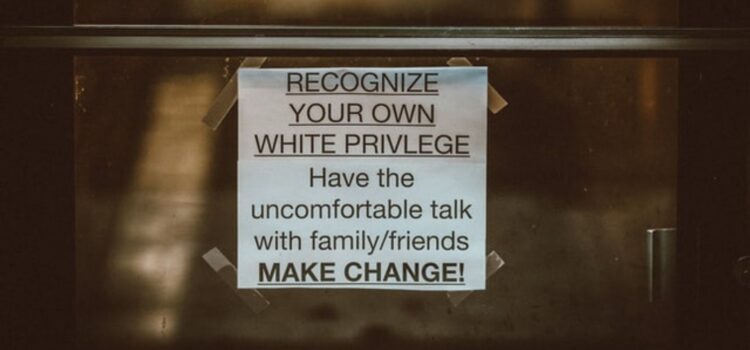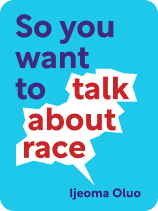

This article is an excerpt from the Shortform book guide to "So You Want to Talk About Race" by Ijeoma Oluo. Shortform has the world's best summaries and analyses of books you should be reading.
Like this article? Sign up for a free trial here .
What does it mean to check your privilege? And how exactly do you go about doing that?
You may have been told to “check your privilege” or have heard someone else being told to do this, perhaps as part of an argument. If you’re told to “check your privilege,” you’re being asked to examine how your belonging to certain social categories (e.g. race, gender, ability) has contributed to your advantageous or privileged position.
Here are some things to consider as you check your privilege.
What Does It Mean to Check Your Privilege?
If you’re told to “check your privilege,” you’re being asked to think honestly about how your privilege has gotten you to this point. What advantages have you had that other people haven’t? What struggles might you be unaware of in other people’s lives? How is this affecting your perspective?
Here’s how to check your privilege:
- Start by yourself. Create a calm, neutral environment where you won’t be interrupted. Be clear about your goal: You’re doing this because you want to—because you want to understand things better and have better conversations (not because you’re in the middle of an argument and someone is forcing you to).
- Write down some of the areas of your life in which the deck has been stacked in your favor. Consider the following: physical health, mental health, disability, immigration status, class, race, home environment, family background, housing, education, gender, sexuality, conventional physical attractiveness, and anything else you can think of. If you feel tempted to list disadvantages, resist the urge. If you like, you can do this later in a separate exercise.
- For each area in which you’ve identified privilege, think about how these advantages have affected (1) your current position and (2) your understanding of this area. For example, if you’re cisgender: (1) What social, financial, and other advantages do you enjoy in relation to the transgender population? And (2) How much do you understand about the experiences of transgender people? If you’re in generally good physical health: (1) What advantages do you enjoy in comparison with people who have congenital or chronic physical conditions? (2) How much do you know about the lives of people with chronic illness?
- Search for information to fill your knowledge gaps. Read work by writers in this area, seek out talks, listen to people in your life who haven’t experienced the same privilege. If you’re in a position of privilege, you might not have it totally wrong, but you’re almost certainly missing some key parts.
Once you understand your privilege, use it to start breaking down barriers. Wherever you have privilege, use it for the benefit of those who don’t.
For example:
- If your privilege has led you to hold a position of authority, use that authority to implement programs to smooth the path for others lacking that privilege.
- If you’re the target demographic for politicians, ask them what they’re doing for people of color and other underprivileged groups.
- If you received a private education, use some of the extra money you make to support public schools.
No matter how much reflecting you do, you’ll always have some unexamined privilege. Stay open to being shown your blind spots and check your privilege as often as you can. Practice working with the feelings of defensiveness that arise when you come face to face with another area in which your privilege is getting in the way of empathy or sensitivity.
If you’re trying to bring someone’s privilege to their attention and they’re just not getting it, remember that these blind spots are by definition hidden from normal consciousness. Remember that you too have unexamined privilege, and you’ll be grateful for compassion the next time someone calls you ou on that.
Training yourself to see privilege is training yourself to see the system. It’s much easier to dismantle a system you can see than one you can’t.

———End of Preview———
Like what you just read? Read the rest of the world's best book summary and analysis of Ijeoma Oluo's "So You Want to Talk About Race" at Shortform .
Here's what you'll find in our full So You Want to Talk About Race summary :
- How to have an intelligent, empathetic conversation about race
- Why people are afraid to talk about race
- Where racism came from and what fuels it






